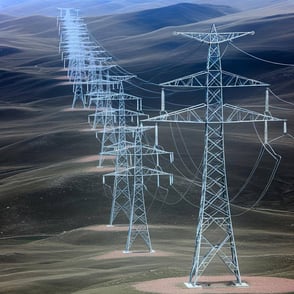Energy Management Systems
What are Energy Management Systems?
Energy Management Systems (EMS) are sophisticated platforms used to monitor, control, and optimize the performance of the generation, transmission, and distribution of electrical power. These systems are integral to ensuring efficient and reliable operation of the power grid, reducing energy consumption, and improving the integration of renewable energy sources. An EMS can be applied in various settings, including residential, commercial, industrial, and utility-scale operations.
Energy Management Systems Work
At the core of an EMS is the ability to dynamically control and intelligently monitor energy resources across a variety of settings—from individual households to entire communities. This involves several key components and processes:
Gateway: Acts as the data collection and processing hub, operating independently of device manufacturers.
Software: Employs advanced algorithms to create rules and restrictions that manage energy assets based on specific needs, such as maximizing self-sufficiency or adhering to local grid requirements.
Interface: A user-friendly platform that allows visualization of live and historical data, setting of parameters, and management of energy flows.
An EMS integrates seamlessly into the energy infrastructure, where it collects, analyzes, and visualizes data in real-time. This system not only optimizes internal operations but also prepares businesses for future energy scenarios by managing an array of energy assets within a household or a larger complex.
The Impact of Energy Management Systems on the Energy Sector
EM systems significantly transform how energy is managed within different sectors, bringing about numerous benefits. They provide precise monitoring and control over energy usage, which greatly enhances operational efficiency and helps in reducing unnecessary energy waste. By optimizing energy consumption and integrating renewable energy sources more effectively, EMS plays a pivotal role in promoting environmental sustainability and helping organizations achieve their green objectives.
For businesses, EMS can lead to substantial cost savings through improved energy efficiency, predictive maintenance, and reduced energy waste. This makes energy management both cost-effective and environmentally friendly. They enables businesses to adapt to changing energy demands and regulatory environments more effectively. This adaptability can provide a competitive edge by allowing companies to offer more sustainable and energy-efficient solutions.
Conclusion
Energy Management Systems are vital for the efficient and sustainable management of energy resources in today's rapidly changing energy landscape. By providing comprehensive tools for the real-time monitoring and management of energy, EMS helps businesses reduce operational costs, enhance energy efficiency, and minimize environmental impact. As the focus on sustainability and efficiency continues to grow, EMS will play an increasingly critical role in shaping the future of energy management, making it an indispensable tool for any energy-conscious organization.
Glossary
- Energy Management Systems (EMS): Sophisticated platforms used to monitor, control, and optimize the performance of electrical power generation, transmission, and distribution.
- Gateway: The data collection and processing hub within an EMS, operating independently of device manufacturers
- Software: The component of EMS that uses advanced algorithms to manage energy assets.
- Interface: A user-friendly platform within an EMS that allows users to visualize live and historical data.
- Real-Time Monitoring: Continuous tracking of energy usage and performance metrics as they happen.
- Energy Assets: Resources managed by an EMS, including power generation units, storage systems, and consumption devices.
- Operational Efficiency: The ability of a system or process to deliver energy services at minimal cost and waste.
- Predictive Maintenance: A feature of EMS that anticipates and prevents equipment failures by analyzing performance data.
- Renewable Energy Integration:
- The process of incorporating renewable energy sources like solar or wind into the power grid.
.png?width=200&height=80&name=etpa-logo-color%20(1).png)































.png)
.png)
-1.png?width=250&height=100&name=etpa-logo-color%20(1)-1.png)